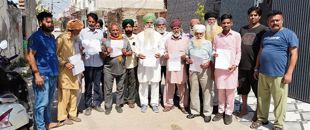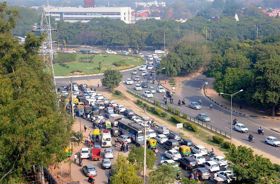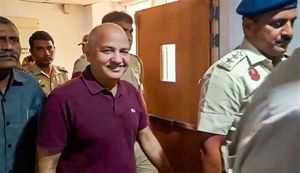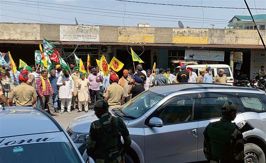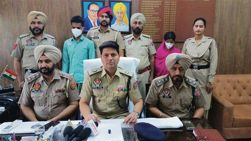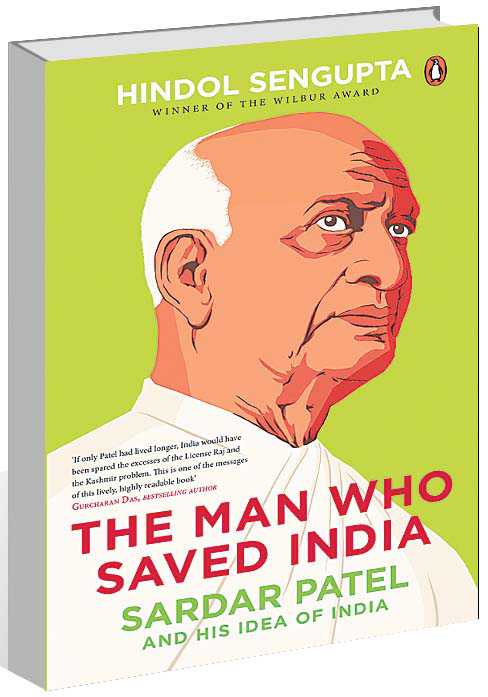
THE MAN WHO SAVED INDIA: SARDAR PATEL AND HIS IDEA OF INDIA by Hindol Sengupta. Penguin/Viking. Pages 437. Rs 799
M Rajivlochan
While reading this marvelous book, one gets the sense that Sardar Vallabhbhai Patel was Eklavya to Mahatma Gandhi’s Dronacharya. In one of his speeches, Sardar Patel did liken himself to Eklavya. He talked of the Bhil disciple of Dronacharya in the Mahabharata who had learnt more than any other disciple, merely by worshipping an earthen idol of his guru. It was characteristic of the man that he followed this up by saying that, unlike the Bhil, he did have access to his guru and far from being his chief disciple, he was hardly even fit to be called a disciple.
Yet, for all his devotion to Gandhi and to the nation, he was repeatedly passed over not once, but many times. Only once was he ever nominated as president of the Congress and he remained there only for one year. Nehru, in contrast, became the party’s president as many as six times.
In 1946, 12 of the 15 state committees in India voted in favour of Sardar Patel as the party’s chief. Everyone knew that the president this time would also be the future prime minister. Sengupta tells us that the Mahatma only asked Nehru once whether he would step aside for Patel in view of the overwhelming mandate for the Sardar. Nehru remained quiet. As usual, the Mahatma then asked Patel to step aside. He did this, as always, unquestioningly. Maulana Azad would later write that it was one of the greatest mistakes he had ever made — not to have supported Patel at that critical juncture.
So, why did Gandhi prefer Nehru to Patel? Durga Das is said to have asked Gandhi this question directly in 1946. He received an astonishing answer. Gandhi is reported to have replied that Jawaharlal was the only English man in his camp and he would not take second place. He was more popular than the Sardar and would make India play a role in international affairs. The Sardar would look after the country’s affairs!
Was it really Nehru’s patrician upbringing and behaviour that were at play here? It is entirely possible that while Gandhi had affection for Sardar Patel, he recognised that Patel had independent ideas and that he could not be depended upon to always agree with Gandhi. Patel did differ with Gandhi on many issues, even while he defended Gandhi in all public spaces at a time when many did not.
The communal question was one issue where attitudes do seem to have differed. In the 1940s, once the Mahatma advised Sardar Patel to learn Urdu. The Sardar replied that even though he was quite old, he would try. But he also pointed out that all the Mahatma’s learning of Urdu did not seem to have helped and that the more he tried to get close to them (Muslims), the more they fled from him. Such trenchant comments could not have been received well.
These and many other nuggets of information flesh out for readers the portrait of a man who is responsible for the map of the country that we live in, and yet about whom so little is known.
Passionate about the unity and integrity of India and winning freedom, the Sardar still remained a pragmatist. He was responsible for much of the organisational strength of the Congress. He also contributed towards the Kheda and Bardoli satyagrahas. Well liked by businessmen too, he was excellent at collecting money for the cause. GD Birla is said to have told him that the Mahatma had said he disliked that Sardar collected money from businessmen. According to Birla, the Sardar replied, “…Gandhi is a Mahatma, I am not. I have to do the job.”
And, he did do the job exceedingly well. To convince and pacify all native princes and to use the iron hand where necessary — all this was the work of Sardar Patel. So much so that the then Soviet Premier Bulganin is said to have been amazed that India had liquidated the princely states without liquidating the princes.





















